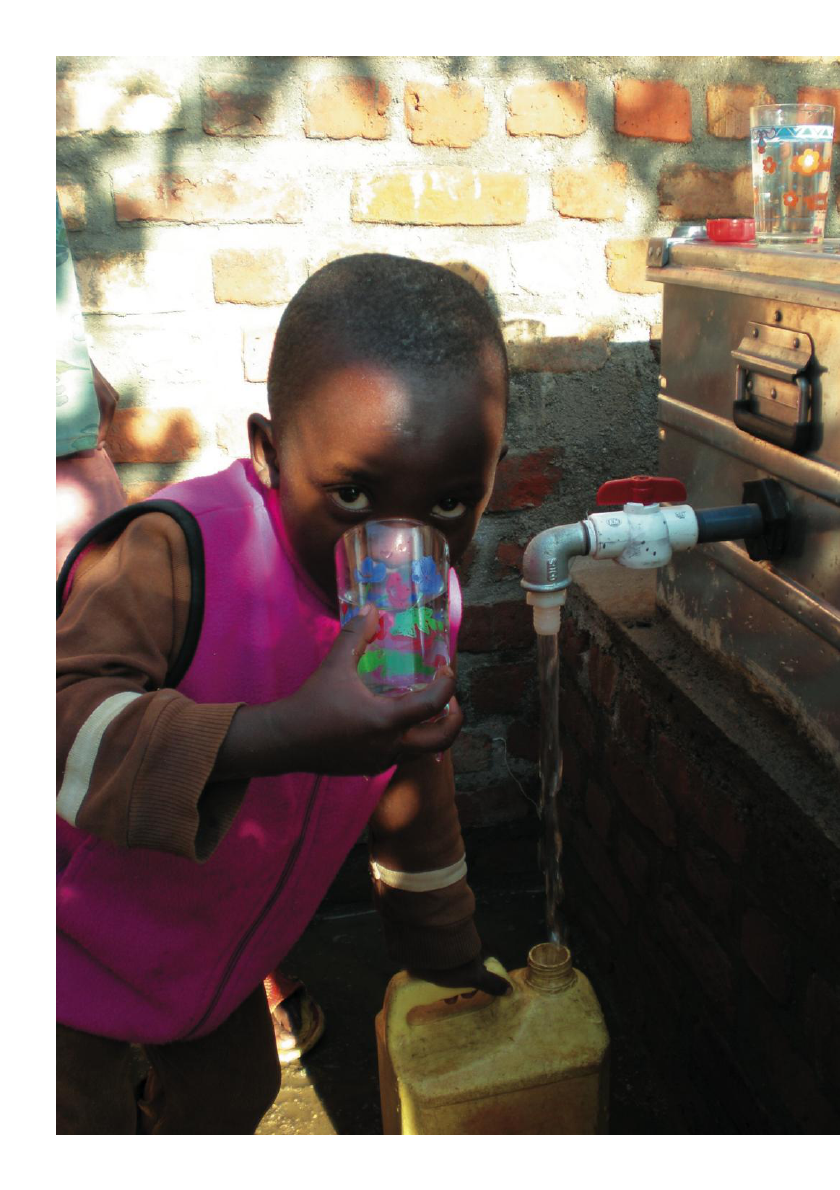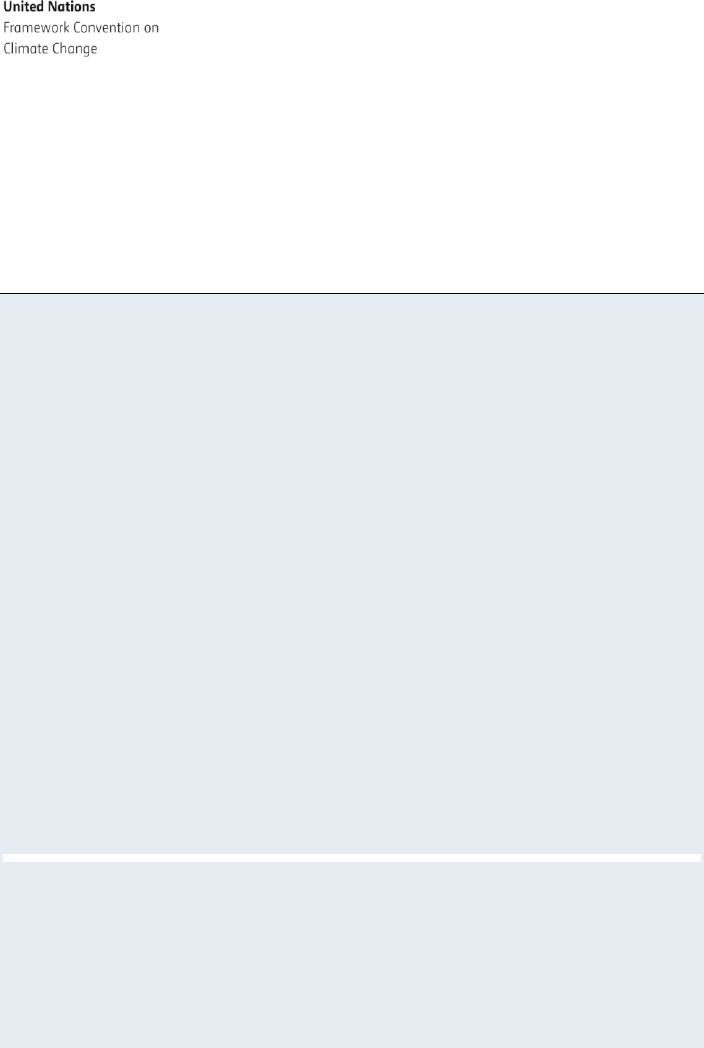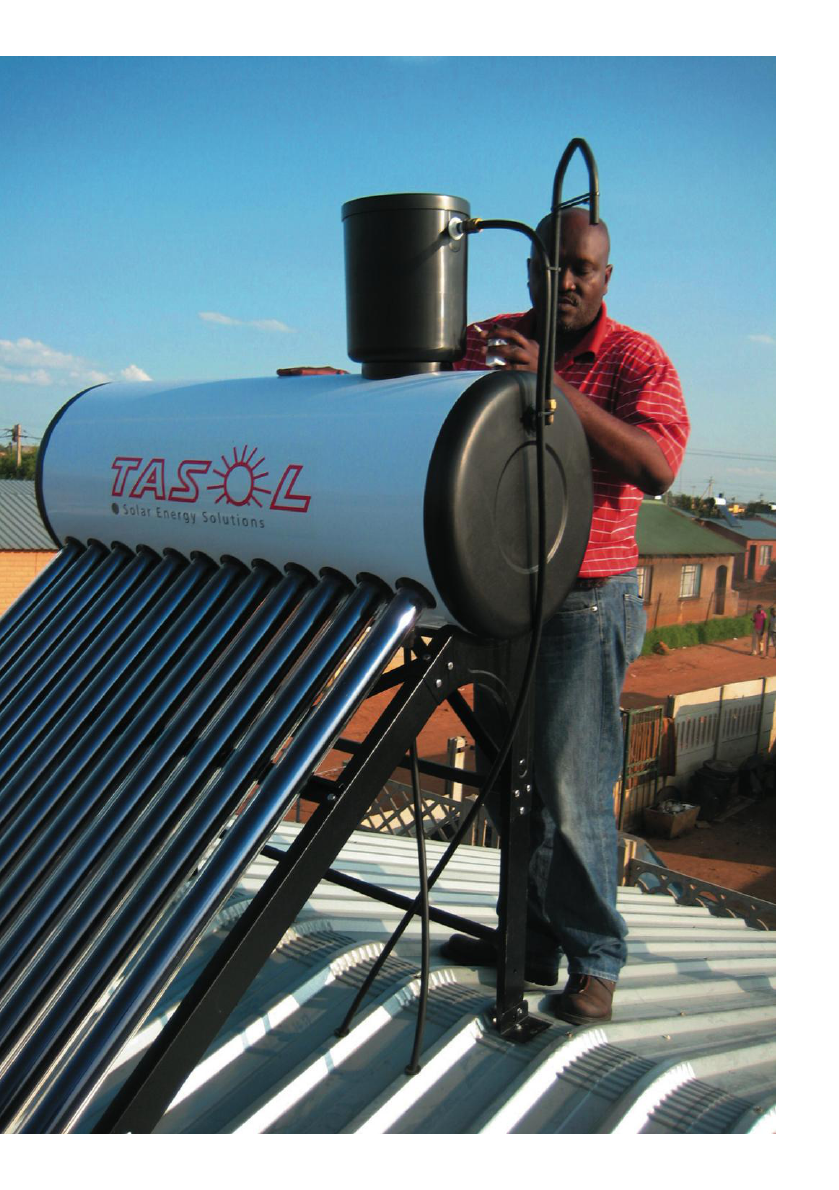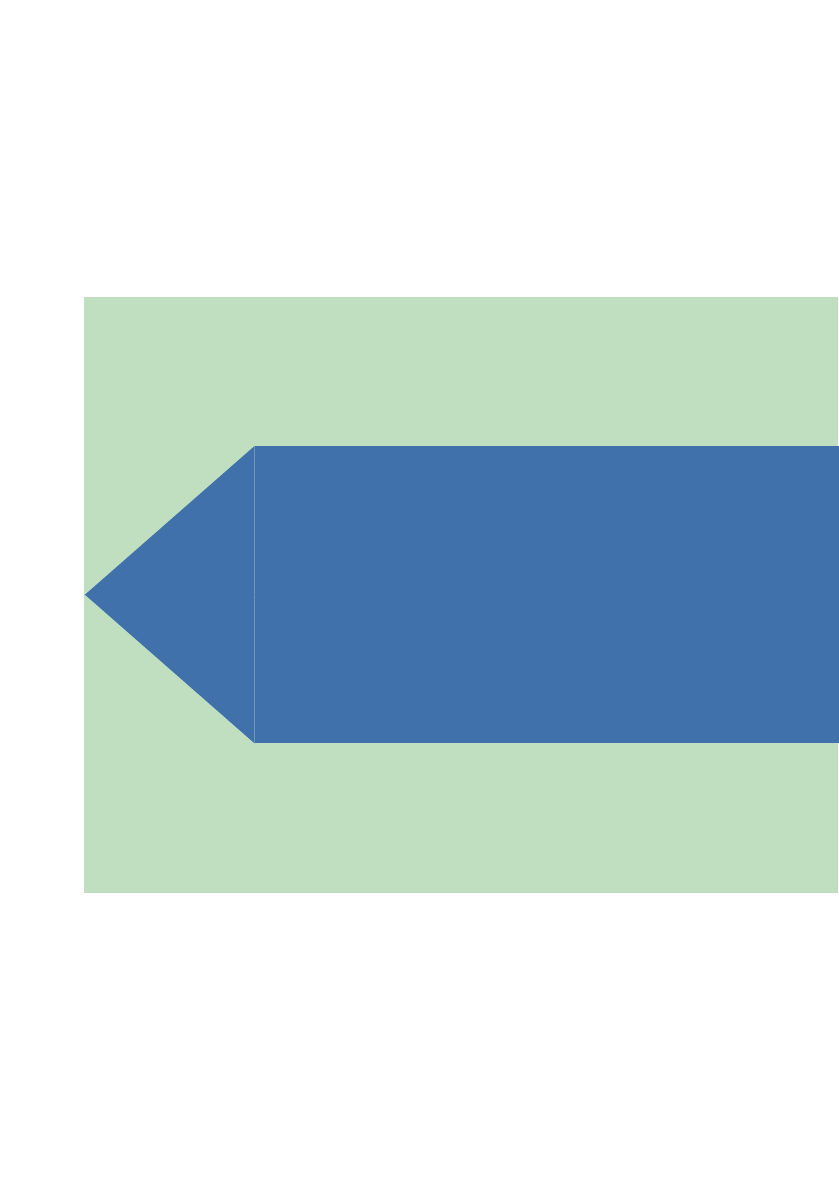
CDM IN AFRICA
FINANCE AND SUPPORT


CDM in Africa
Finance and Support
1
INTRODUCTION
As early as 2006, Parties to the Kyoto Protocol recognized the importance of a balanced
regional distribution of CDM projects and welcomed the establishment of the Nairobi
Framework, which brings together UN and regional organizations to support access to the
mechanism. In light of the benefits that the CDM can bring to lesser developed regions, the
Nairobi Framework partners and others began funding technical support and capacity-
building programmes for the CDM, particularly in Africa.
The following pages provide a short description of the most important financing and
support opportunities available for CDM projects in Africa.
UNFCCC’S LOAN SCHEME FOR COUNTRIES WITH FEWER THAN 10
REGISTERED CDM PROJECTS
This loan scheme was established by the secretariat of the United Nations Framework
Convention on Climate Change at the request of the Parties to the Kyoto Protocol. It
provides zero per cent interest loans to cover the following expenses associated with CDM
projects:
• Development of project design document (PDD)
• Validation of the PDD by a Designated Operational Entity (DOE)
• Verification by a DOE of the first issuance of Certified Emission Reductions (CERs)
Projects applying for a loan must have a high probability of getting registered with the
UNFCCC and generating at least 7,500 CERs per year (projects in Least Developed
Countries (LDCs)), and 15,000 CERs per year (non-LDCs). Project documentation must be
developed by an experienced CDM consultant and the loan must not “crowd out” other
funding sources, such as donor funding or funding by an already identified buyer of CERs
from the project.
Further details on the application procedure and the selection requirements are available
here: <http://www.cdmloanscheme.org>

CDM in Africa
Finance and Support
2
UNFCCC’S REGIONAL COLLABORATION CENTRES (RCCs) IN LOMÉ AND
KAMPALA
In order to provide hands-on support to CDM projects, the UNFCCC secretariat, in
partnership with regional development banks, has helped to establish two regional
collaboration centres in Africa. They are located in Lomé, Togo, mainly to support
Francophone Africa, and in Kampala, Uganda, to reach out to more than 20 countries in
eastern and southern Africa. They focus on:
Identifying opportunities for potential projects and programmes eligible under the
CDM
Providing direct support to the design of CDM projects and programmes by addressing
technical and procedural issues in the project design and validation phase
Clarifying problems identified by third-party validators
Identifying priority areas for the development of standardized baselines based on the
emission profile of the country, in order to considerably simplify local CDM projects
Identifying projects and programmes that would benefit from standardized baselines
and supporting the design of such projects and programmes
Providing institutional capacity development to various institutions, including
universities, independent development organizations and government agencies
Further information is available at:
<http://cdm.unfccc.int/stakeholder/rcc/index.html>

CDM in Africa
Finance and Support
3
WORLD BANK CARBON FUNDS AND INITIATIVES
Of the 15 carbon funds and initiatives managed by the World Bank, three are open to
support the CDM or will be open after the conclusion of a fund raising process.
Further general information is available at: <www.carbonfinance.org>
CARBON PARTNERSHIP FACILITY (POA SUPPORT)
The Carbon Partnership Facility (CPF) supports CDM Programmes of Activities (PoA) by
developing large scale emission reduction programmes and purchasing the resulting CERs.
In order to scale up carbon finance, the CPF collaborates with governments and market
participants on investment efforts and sector-based interventions. These initiatives must
be consistent with low-carbon economic growth and the sustainable development
priorities of the host developing country. Further information is available at:
<http://cpf.wbcarbonfinance.org>
CARBON INITIATIVE FOR DEVELOPMENT (ACCESS TO ENERGY SUPPORT IN LOW-INCOME
COUNTRIES)
The Carbon Initiative for Development (Ci-Dev) was launched in December 2011. It will
build capacity and develop tools and methodologies to help the poorest countries of the
world access carbon finance, mainly in the area of energy access. It will also use
emission-reduction-based performance payments to support projects that use clean and
efficient technologies in low-income countries.
Further information is available at:
<http://wbcarbonfinance.org/CIDEV>
BIOCARBON FUND (AFFORESTATION AND REFORESTATION SUPPORT)
This fund, launched in December 2011, aims to increase the number of projects that
sequester or conserve carbon in forests and landscapes, such as REDD (reducing emissions
from deforestation and forest degradation) and afforestation and reforestation CDM
projects.
Further information is available at: <http://wbcarbonfinance.org/BioCF>

CDM in Africa
Finance and Support
4
FINANCIAL SUPPORT FOR PUBLIC SECTOR PROJECTS (NOT EXCLUSIVELY CDM RELATED)
The World Bank’s country offices provide support for public sector projects. Contact
details are available at: <www.worldbank.org/countries>
FINANCIAL SUPPORT FOR PRIVATE SECTOR PROJECTS (NOT EXCLUSIVELY CDM RELATED)
The International Finance Corporation provides support to private sector projects. An
overview of the various programmes, as well as contact details for IFC’s regional and
country offices, is available at: <http://www.ifc.org>
TRAINING SEMINARS ON THE CDM
World Bank Institute holds training seminars for identified stakeholders. It also offers
online seminars that are open to the public. Further information is available at:
<http://einstitute.worldbank.org/ei/CourseTheme>
An overview of financial options for climate action in developing countries in general is
available at: <http://www.climatefinanceoptions.org>
THE AFRICAN DEVELOPMENT BANK’S (AFDB) AFRICAN CARBON
SUPPORT PROGRAMME (ACSP)
ACSP was a two- year programme that provided direct technical assistance to project
developers and African designated national authorities on CDM processes. It also drove the
development and approval of a methodology for cross-border electricity transmission
projects. Going forward from the ACSP, the Bank will continue to support projects with
CDM potential.
Further information is available at: <http://www.afdb.org/en/topics-and-
sectors/initiatives-partnerships/african-carbon-support-program/>

CDM in Africa
Finance and Support
5
AFRICA CARBON ASSET DEVELOPMENT INITIATIVE (ACAD)
Launched in 2009 to kick-start the African carbon market, ACAD supports potential CDM
projects with:
• Targeted grants for early costs
• Technical assistance for local project developers
• Carbon finance training for local financial institutions
ACAD aims to support highly replicable demonstration projects by reducing the early-
stage investment risks associated with African carbon projects (excluding afforestation
and reforestation projects).
This is an initiative of the United Nations Environment Programme (UNEP) and Standard
Bank and is funded by the German government. Further information, including application
guidelines, is available at: <http://www.acadfacility.org>
THE INTRA-ACP CLIMATE SUPPORT FACILITY (CSF)
Being part of the Global Climate Change Alliance (GCCA), the CSF provides customized
short-term technical assistance to projects in African, Caribbean, and Pacific (ACP)
countries in any of the GCCA's five priority areas, one of them the CDM.
Once a clear vision of the required assistance is submitted, services can be implemented
within a month. They include:
Project identification and formulation
Feasibility studies
Assistance in securing funding
Training, workshops and capacity-building
Policy development
Further information on the CSF is available at the following link, which also includes
information on supported projects:
<http://www.gcca.eu/intra-acp/climate-support-facility>

CDM in Africa
Finance and Support
6
AFRICAN BIOFUELS AND RENEWABLE ENERGY FUND (ABREF)
ABREF contributes to the development of the biofuel and renewable energy industry in
Africa, and was initially focussed on the member countries of the Economic Community of
West African States (ECOWAS).
The fund is managed by the African Biofuel and Renewable Energy Company (ABREC),
which also offers technical assistance by preparing feasibility studies and engaging in
capacity-building and technology transfer. It is open to all renewable energy projects in
Africa, including those eligible under the CDM.
The following project types are covered by the fund:
• Biofuels
• Fuel-switching to biomass energy
• Hydro power
• Wind power
• Methane leakage
• Capture of methane from landfills
• Forestry
Further information is available at: <http://www.faber-abref.org/index_english.php>
UNDP’S MILLENNIUM DEVELOPMENT GOALS (MDG) CARBON
The carbon facility of the United Nations Development Programme supports projects in
countries with few or no CDM projects. It focusses on projects that strongly contribute to
the MDGs in least developed countries, where it offers:
• Project development services
• Technical assistance for the approval process until CDM registration
Certain types of projects are excluded, such as geo-sequestration including enhanced oil
recovery, electric power load shifting and capture and destruction of industrial gases.
Further information is available at: <http://www.mdgcarbon.org/>

CDM in Africa
Finance and Support
7
In addition, there are national programmes for the purchase of CERs, some of which also
include early-stage support for CDM projects. For example:
GERMANY’S POA SUPPORT FACILITIES
POA SUPPORT CENTRE GERMANY
In order to support the development of programmes of activities (POA), the German
development bank KfW offers a variety of services. These include:
• Advisory, structuring and assessment services for programme proposals
• Financing and grants to cover the preparation of programme concepts, project design
documents and monitoring plans
• Support for programme implementation
• Assistance with marketing expected carbon credits
Further information is available at:
<https://www.kfw-entwicklungsbank.de/International-financing/KfW-
Entwicklungsbank/Environment-and-climate/Klima%C2%ADschutzfonds/PoA-
F%C3%B6rderzentrum-Deutschland/>
FUTURE OF THE CARBON MARKET FOUNDATION
Based on the belief that the principle underlying POAs is also of strategic importance for
future mechanisms of international climate finance, the foundation aims at funding
measures that:
• Support the dissemination of the programmatic project approach
• Use the market to exploit further emission reduction potentials
• Acquire knowledge and experience that might be valuable for future carbon market
mechanisms and enhance the ability of countries hosting POAs to develop more far-
reaching climate policies.
Further information is available at: <http://www.carbonmarket-foundation.org/home>

CDM in Africa
Finance and Support
8
The Nairobi Framework Partners are:
United Nations Framework Convention on Climate Change
United Nations Development Programme
United Nations Environment Programme
World Bank Group
African Development Bank
United Nations Conference on Trade and Development
United Nations Institute for Training and Research
The first version of this publication was distributed at the Africa Carbon Forum in Addis
Ababa in April 2012. This third version was updated on 1 May 2013. Future editions will
include further finance and support opportunities available from multilateral and domestic
sources. If you know of a CDM finance or support programme not listed here, please
contact [email protected]
© 2013 UNFCCC
United Nations Framework Convention on Climate Change
All rights reserved
This publication is issued for public information purposes and is not an official text of the Convention in any legal or technical sense. Unless
otherwise noted in captions or graphics all matter may be freely reproduced in part or in full, provided the source is acknowledged and
photographer is credited.
For further information contact
Climate Change Secretariat (UNFCCC), Martin-Luther-King-Strasse 8, 53175 Bonn, Germany
Telephone +49. 228. 815 10 00, Telefax +49. 228. 815 19 99, [email protected], unfccc.int
ISBN 92-9219-106-3
Photo credits, inside cover: Front – Evan Thomas, CDM Project 4799: Rwanda Natural Energy Project:
Water Treatment Systems for Rural Rwanda (Mugonero Esepan, Rwesero, Nyagasambu)
Back – Chris Zink, CDM Project 4302: SASSA Low Pressure Solar Water Heater Programme
Art direction and design: Heller & C GmbH, Cologne

CDM in Africa
Finance and Support
9

CDM in Africa
Finance and Support
10
